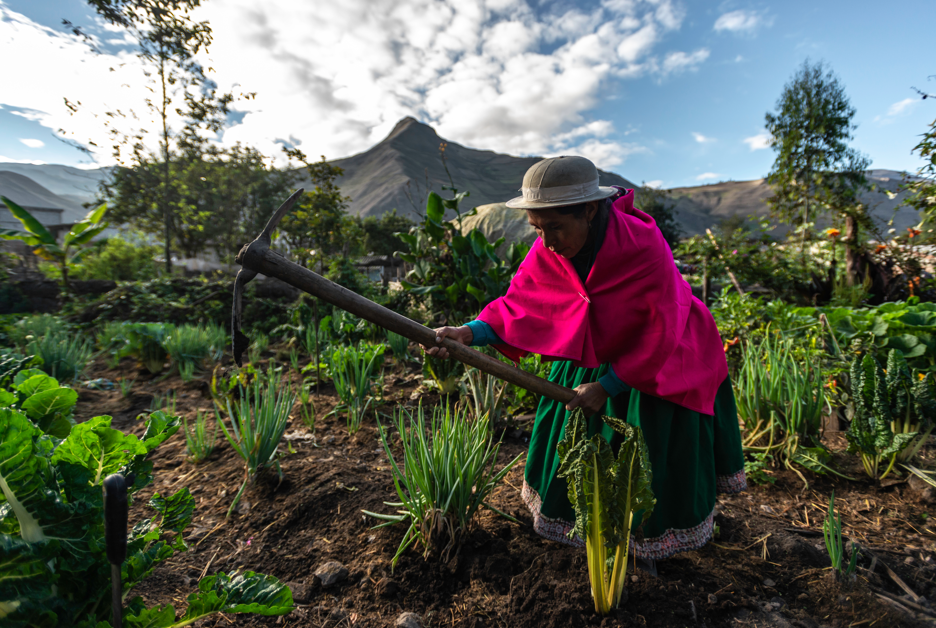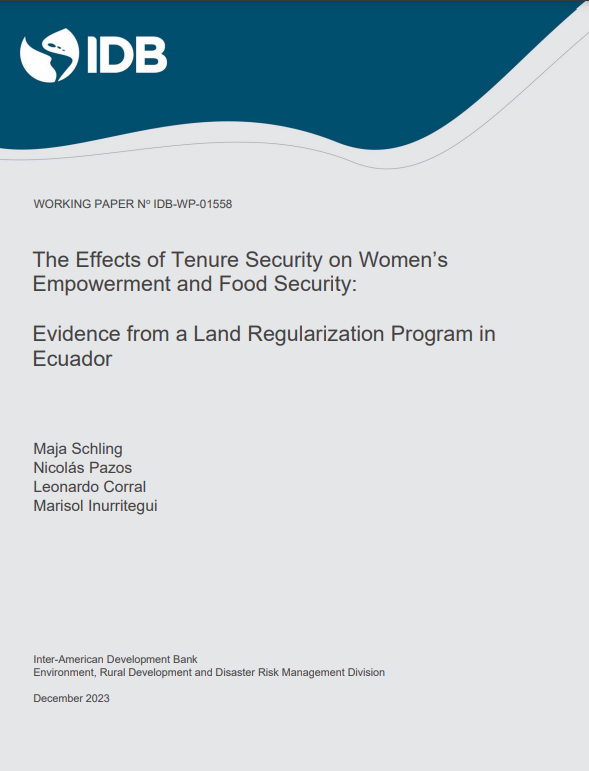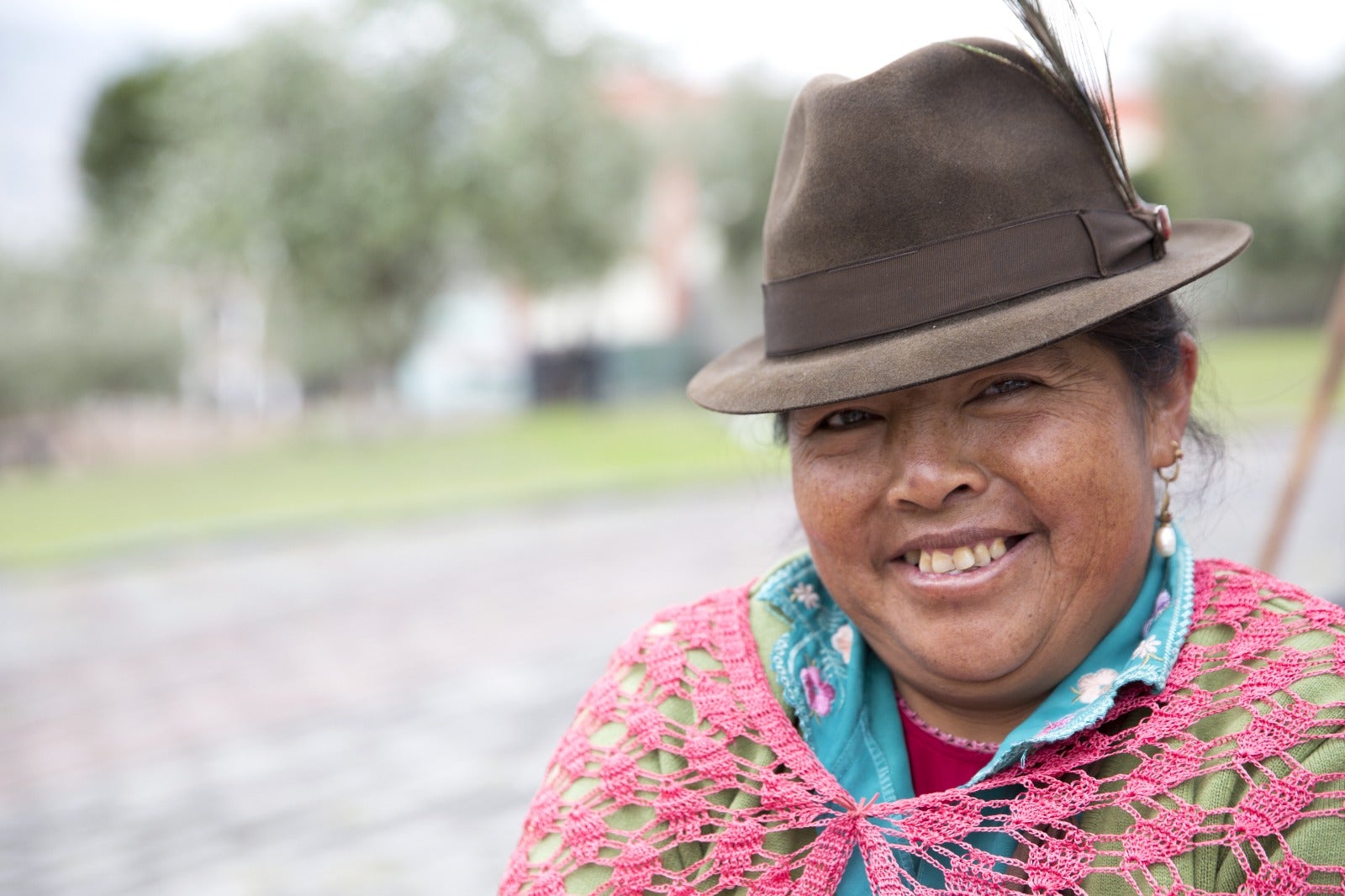Smallholder farmers in developing countries around the world face numerous barriers to increasing their agricultural productivity and escaping the cycle of poverty and food insecurity. In Latin America and the Caribbean, 247.8 million people or 37.4% of the population are food insecure, which means that people are in a situation where they do not always have physical or economic access to enough safe and nutritious food to meet their dietary needs for a healthy life. In addition, approximately 41% of the region’s rural population lives in poverty, and 19.5% in extreme poverty.
Among smallholder farmers in the region, women are a particularly vulnerable group. Despite the fact that women make up 43% of the agricultural workforce, many women continue to work as unpaid family workers and face restricted access to important agricultural assets and services such as credit, inputs, and extension services, resulting in their farms being 24% less productive than farms managed by men. In addition, women in Latin America and the Caribbean own only 20% of farms (ranging from 8% in Belize and Guatemala to 30% in Chile, Jamaica and Peru) and these farms tend to be smaller and with lower quality land. Likewise, the gender gap in terms of food insecurity is significant (11.3%), affecting almost 45% of the female population, positioning the region as the most unequal globally in terms of food security.
Land ownership represents an important asset for women farmers, and not just with regard to gender equality: research has consistently shown that access to assets, and particularly land, allows women to increase their bargaining power within the family, meaning they play a more active role in the decision-making about the household’s production and consumption which contribute to the family’s general well-being. Because women tend to favor the nutrition and well-being of the family, women’s influence on production decisions for household consumption can lead to more diversified crop production and better food security within the household.

Tenure Security
Tenure security is the certainty that a person or group’s rights to land and related resources will be recognized by others and protected in the event of challenge or conflict. Research on the impacts that greater tenure security for women can have on their empowerment and food security is still in its infancy. In part, this is due to the fact that tenure security depends on a composition of economic and legal rights that will vary according to the local context. For example, within a community, where traditional systems of customary tenure may carry more weight than national legislation, social acceptance and recognition of ownership tend to weigh more heavily on the perception of tenure security than formal legal title. In addition, given that women have historically not been granted access to land, and that men, as traditional heads of households, tend to participate more actively in the process of formalization of tenure, there is a significant gender gap when it comes to knowledge about land rights. Receiving joint title to a plot of land may not be sufficient to increase women’s perceived tenure security if they are not aware of their rights and responsibilities related to land ownership.
In our study “The Effects of Tenure Security on Women’s Empowerment and Food Security: Evidence from a Land Regularization Program in Ecuador”, we seek to shed light on this important causal relationship between female tenure security, empowerment and food security. Our analysis draws on the impact evaluation of the National Rural Land Information and Management System Program, or SigTierras, launched in 2012. Although the Program did not reach its regularization goal and had only issued official titles for 23% of all beneficiaries in 2016, SigTierras completed cadastral mapping of more than 200,000 square kilometers of surface area and created more than 160,000 georeferenced individual parcel maps, which were presented to community members in carefully organized and publicized meetings in each beneficiary community. In this way, the socialization of the results at the local level was guaranteed, thus increasing local knowledge, recognition and acceptance of the established parcel boundaries. In addition, in order to ensure the inclusion of women in the regularization process, all plots occupied by a couple living in marriage or de facto union were considered joint ownership, both in the regularization documents and on the cadastral map.
To find out whether the increase in women’s tenure security achieved through cadastral mapping can enhance their empowerment, and translate into higher levels of household food security, we used panel survey data collected before and after the implementation of the SigTierras Program for a sample of beneficiary households and a carefully selected control group. We focused on the sample of approximately 1,450 farmer households, and applied a doubly robust empirical strategy to estimate the causal impact of the Program.
While we did not find effects of SigTierras on aggregate levels of empowerment, the results show that women beneficiaries were more empowered in terms of access to resources, especially in terms of applying for and receiving credit. Women also significantly increased their time working outside the home and were more likely to engage in non-farm activities, invest in their own businesses, and generate non-farm wages. We also observed that participation in SigTierras significantly increased household food security, as women participated more actively in decision-making and paid more for food.
Taken together, these results suggest that increasing tenure security through cadastral mapping is beneficial not only in terms of improving gender equality, but also because of the significant positive effects this has on household food security. A lesson learned from the SigTierras Program highlights the importance of understanding the local context in which tenure is intended to be regularized to accommodate traditional systems, and of emphasizing the socialization of results at the local level, to ensure knowledge, recognition and acceptance of the rights and opportunities that tenure grants to landowners.

—
Did you like this content? Subscribe to our data base of Agriculture and Food Security to receive information about new publications and upcoming events.
—
Related content:
Infographics: Seeds for Food Security in Latin America and the Caribbean
Blog: COP28: Why Food Systems Must Be at the Center of the Climate Agenda
Blog: Protecting the Planet to Ensure Food Security
Playlist: Seeds for Food Security IDB Events in 2023
Publication: Unleashing Innovation: Assessment of the Role of Agricultural R&D in Latin America and the Caribbean
—
Image credits: Shutterstock


Leave a Reply